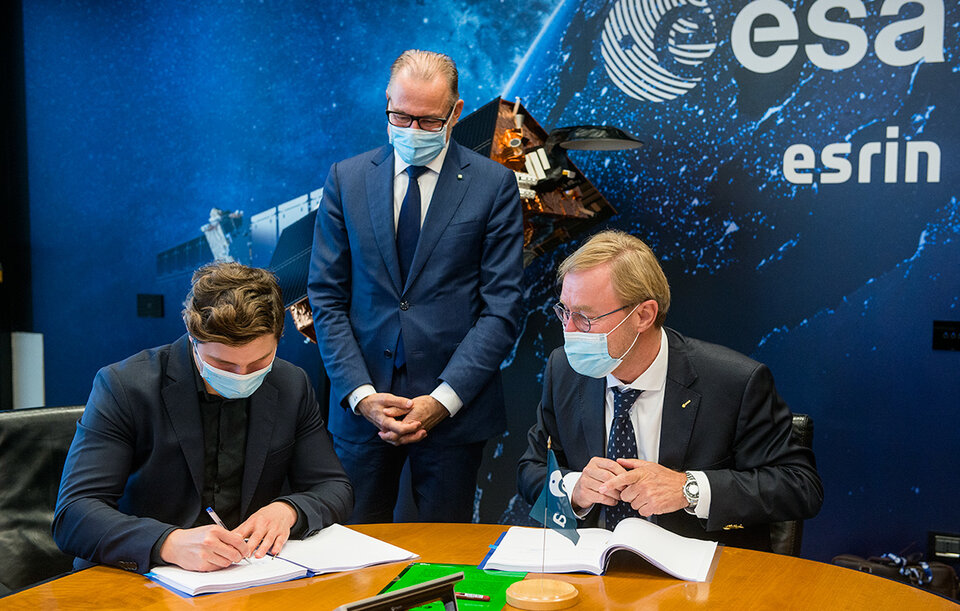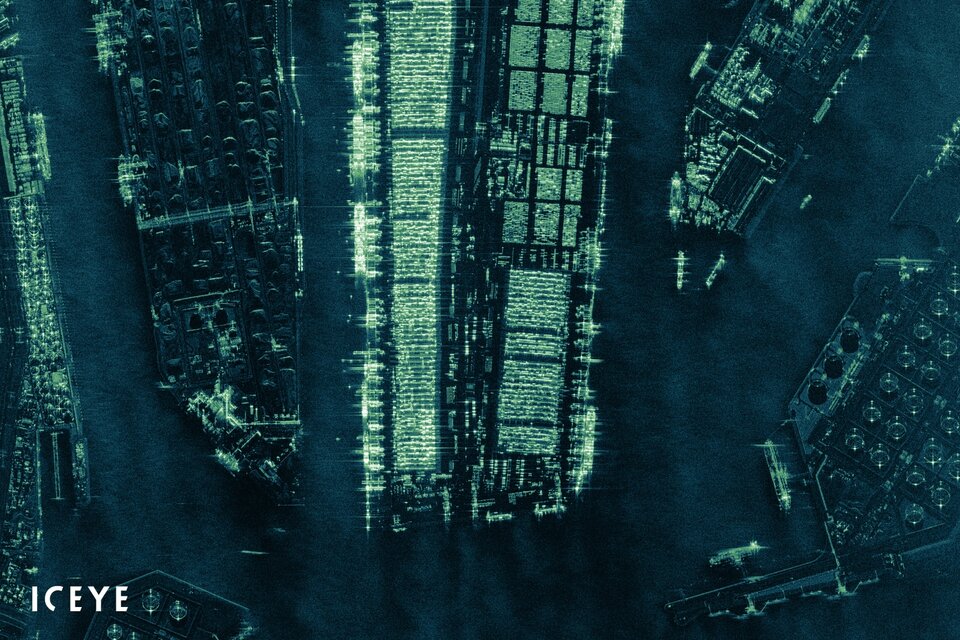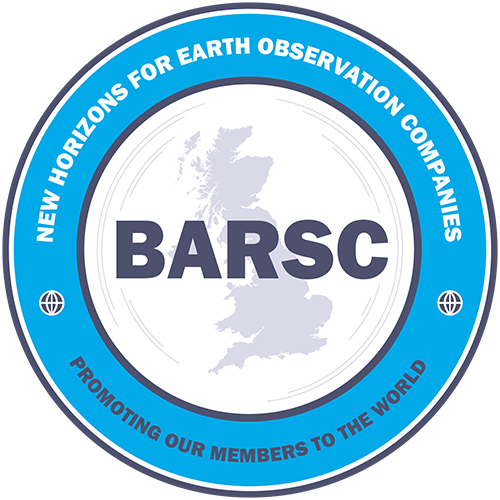ESA signed a contract that brings the ICEYE constellation of small satellites into the fleet of missions contributing to Europe’s Copernicus environmental monitoring programme. As a commercial provider of satellite radar imagery, ICEYE is a perfect example of European New Space being implemented within Copernicus.
With the contract signed during ESA’s Φ-week – an event which this year focuses on the New Space economy – the timing couldn’t have been more apt.

ESA’s Acting Head of Earth Observation Programmes, Toni Tolker-Nielsen, said, “I am confident that ICEYE’s commercial constellation of small synthetic aperture radar satellites, with the objective of providing near-realtime monitoring capability of the globe, will make an excellent contribution to the Copernicus Emergency Monitoring Service and to the Copernicus Marine Environment Monitoring Service, for example.”
While the suite of Sentinel missions that ESA develops and builds, and in many cases operates on behalf of the European Commission, are central to the European Union’s Copernicus programme, there are different other commercial satellite missions that play a crucial role in delivering complementary very high-resolution Earth observation data to answer to the data needs of the Copernicus Services and public authorities.

These include missions from ESA, their Member States, commercial optical and radar mission operators, and other European and international third-party mission operators that make some of their data available for the Copernicus services.
ESA’s responsibility here includes coordinating all the Copernicus Contributing Mission activities as part of the Copernicus programme on behalf of the European Commission.
ICEYE builds and operates a commercial constellation of small synthetic aperture radar satellites. So far, 14 satellites have been launched and ICEYE plans to expand its constellation up to 18 satellites by mid-2022, with the objective of reaching an average access time of three hours anywhere on the globe.

The mission is used in many sectors, from monitoring floods and mining activities, to marine vessel detection and iceberg monitoring.
The ICEYE satellite constellation will complement existing synthetic aperture radar missions in the Copernicus programme.
Toni Tolker-Nielsen continued, “We are particularly proud to work with ICEYE, which is one the few New Space companies that we have in Europe in the field of Earth observation. In fact, this is not the first contract that ESA has signed with ICEYE. For a few years now, ESA has been buying ICEYE data and making them available to scientists and to pilot activities. I encourage scientists to use ICEYE data through the Earthnet programme.”

